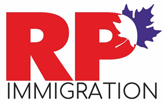As of August 31, 2024, the Immigration, Refugees, and Citizenship Canada (IRCC) application backlog has reached an alarming 1,078,300 applications. This represents a 7.6% increase from July and underscores the ongoing challenges faced by the department, especially as we continue to feel the effects of the COVID-19 pandemic.
The Current Landscape
The IRCC is tasked with processing a staggering 2,420,800 applications. While it’s encouraging that 1,342,500 applications are currently within service standards, the backlog presents significant hurdles for many hopeful immigrants.

Breaking Down the Numbers:
1. Permanent Residence Applications:
- Total Applications: 805,600
- Backlog: 300,800 (37%)
- Express Entry Backlog: 16% (slightly above the projected 15%)
- Express Entry-aligned PNP Backlog: 22% (exceeding the 20% target)
- Spousal Sponsorship Backlog: 14% (better than expected)
2. Temporary Residence Applications:
- Total Applications: 1,386,000
- Backlog: 738,900 (53%)
- Temporary Resident Visa (TRV) Backlog: 71%
- Study Permits Backlog: 32%
- Work Permits Backlog: 47%
3. Citizenship Grant Applications:
- Total Applications: 229,200
- Backlog: 38,600 (17%)

How Is IRCC Tackling the Backlog?
The IRCC has been proactive in its approach to address the backlog and improve processing times:
- Streamlined Online Processes: The department is enhancing its online application systems for both permanent residence and citizenship, making it easier for applicants to navigate the process.
- Virtual Citizenship Ceremonies: By transitioning to virtual ceremonies, IRCC has reduced the administrative load while maintaining the integrity of the citizenship process.
- Prioritizing Essential Workers: Applications from individuals in essential occupations are being prioritized to help alleviate ongoing labor shortages in Canada.
- Introducing a Soft Cap on Temporary Residents: To manage the influx of applications, IRCC plans to implement a soft cap on the number of temporary residents allowed into Canada, aiming to reduce the backlog significantly.
Looking Ahead
IRCC has announced its commitment to reviewing current service standards, with new benchmarks expected by December 31, 2024. This move is part of a broader strategy to ensure that applicants are processed in a timely manner and that the backlog is managed effectively.
Conclusion
While the current backlog presents challenges, IRCC’s ongoing efforts to streamline processes and prioritize essential applications provide hope for many applicants. Stay informed and engaged as we navigate these changes in Canada’s immigration landscape.


